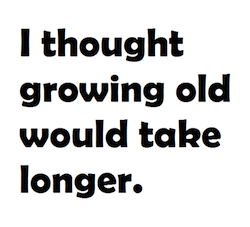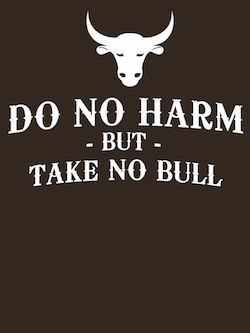LETTERS FROM THE GLOBAL PROVINCE
Much Ado About Nothing and Something, Global Province Letter, 26 April 2017
Dreams Are Immortal Whilst age makes the arteries tremble,
Balance unbalanced, uncertain as our lump of being ricochets through space,
Insolence inside the circuitry of the soul does battle with Newton's gravity,
Withal nonetheless, sumptuous dreams make me whole again.I become a Wye Oak fastened to the Eastern Shore,
the forever tree,
my roots plunging deep into
the rich cobalt nether regions,
while my limbs soar into the rare skies that hold the universe.Like Wye and the sky,
I span the centuries,
No longer mortal.
Instead a god who smilesCrescendo.
If I can sculpt dreams of enormity,
They will explode throughout the galaxies.
They will rewrite the tortured code
Embedded in the story we call heredity,
Stuffing time and space back in Pandora's box.Bravo.
Mortality is given very short shrift,
Death is given the door,
Such a lifting cleansing of the spirit,
When that garden inside the skull,
Paints eternal green cross the torrential strident red heart.
All weakness exits,
Corporeal orifices drink from the cup of long life.
Trivial Lives. Nothing seems to have drained meaning from life so much as the petty technologies that, much like viruses, have infected modern life. Apple's MacSilly computers have made a graphic designer out of every man, such that Tom, Dick, and Harry and everybody else has been able to create a graphic jumble, pasting ugliness into lives. MacSmear covers everything. We are surrounded by meaningless graphics that add up to graffiti. Even highly rated design has become banal at best.
Then too, there are cellphones and social networks that spit out so many words that they fill up every moment and drown out yesterday and tomorrow. This has earned us a bankrupt president who is exempt from logic and meaning, since he does not use language but tweets his way through the day. We are covered with digital grime that obliterates the past, disguises the future, and causes us to live stupidly absorbed in the seconds where we find ourselves. We are ever more passive pseudo rodents scurrying around a virtual maze, deep fog in the sky above.

But Mortality Is Still There. Nonetheless, mortality, the serious stuff, stills lurks in the bushes, even if we try to escape it. We can only pretend to escape time and its ravages. For a while, before our citizens suddenly became old, we sought the Fountain of Youth in Florida, California, and spas where the lights were turned down low and we could try to ignore our wrinkles. We may ignore the passage of time, but soon enough this brief moral coil, our short life, presses on us again.
The very colorful Andre Malraux, writer, scoundrel, sometime thief, manic depressive, companion to de Gaulle, and a little bit of everything seemed to understand all this. He wandered in and out of trivia, even debasement, and yet a careful read of his work implies that he well understood that the gods could never be forgiven for inflicting mortality on us. All the same, it was man's perpetual duel with death that gives life its edge and meaning. Yes, Malraux was a buffoon, but he cottoned on to some of life's grand themes better than the wise men of his age.

The Short and Long of It. For life to have meaning, we have to look it in the face. That is, it is a short trip, even if you pass a hundred years, and it asks us, while we have time, to figure out how to live the good life. And die the good death. We must answer both questions with terseness and bluntness, casting aside the mountain of words that surround us in modern times. Life has meaning if and when we can get very explicit about what it is saying to us. We must rake life and death with our eyes and our mind and our feelings if we're to understand them.
Happily there are even a few decent books in the bookstores these days about our brief lease on life, none of them bilious 500 page wonders , regurgitations from authors who don't know what to say. Here are a handful that merit your attention.
Mortality.
An Englishmen who happily rehoused himself in the United States, Christopher Hitchens was bright as sin, a fabulous debater who merrily rolled over Tony Blair on the merits and demerits of religious belief, was a bemusing essay writer, and a poet besides. He had a brief illness starting in 2010, which snatched him from us too soon on December 15, 2011. Here, in effect, he wrote about his own death. Methinks the beauty of his book is that it renders clearly the experience of dying as felt and thought about by a man who never cast his brain aside. "I have more than once in my time woken up feeling like death. But nothing prepared me for the early morning in June when I came to consciousness feeling as if I were actually shackled to my own corpse." Even as he was beginning to take his leave of this earth, he was beginning to feel imprisoned by his mortality. For those of us who have passed through death or near death in our lifetimes Hitchens rings familiar. The march towards death is as pedestrian as most other things we brush up against on earth, except we somehow feel that we are seeing everything from 93 million miles away.
Gratitude. Neurologist, naturalist, motorcyclist, and a bunch of other things, Oliver Sacks, an Englishman who melted into America, left his own special gravestone, a little volume called Gratitude, published after he left us, that testified that he had a lust for life that endured to his end and was grateful for the fullness of things to include beautiful years suffused with love. At the last he said, "I am now face to face with dying, but I am not finished with living." "At nearly eighty, with a scattering of medical and surgical problems, I feel glad to be alive—'I'm glad I'm not dead!' sometimes bursts out of me when the weather is perfect." Sacks had that spark of humor and vitality that accepts the cards he has been dealt in life and plays a canny game of poker. There are those like him in life who avoid endless soul searching and simply see tomorrow as yet another ebullient adventure. It is fitting that just before he knew he was headed for the exits he wrote an autobiography On the Move: A Life
where he makes clear that he was a meteor in motion who had no time to cry over spilt milk. Belief in life gave him power to defy inertia.

Do No Harm. There are those noble trades where, our own lives aside, we deal with death daily, yea death every moment. The now retired extraordinary brain cancer surgeon Henry Marsh wrestles with this moral and mortal dilemma in Do No Harm, an ironic title for this volume that recounts his struggle with the endless varieties of brain cancer, where oft as not, at least 50% of the time, the cancer has the upper hand, and his patients either would die in short order or after a long agony. In fact, the book is in part confessional, owning up to the fact that along the way one does a whole lot of harm cutting into our cortexes. Broadly the book is a lesson to all of us since many of us finding ourselves doing more than a little harm in trying to carry out our responsibilities on this earth, throwing pollution into the air so that our citizens can power their homes, churning out food that is fattening or worse to keep bellies full, selling financial instruments to society that drain off capital that could be used for more productive endeavors. Marsh tells us how a person of feeling can do what he has to do, even if the outcome is a zero sum game.
American Philosophy. John Kaag's book is a significant bit of history (of American Philosophy) and a heartening memoir of his recovery from an insignificant life as an average philosophy professor at the University of Massachusetts Lowell. In 2008, just as the whole country was descending into an economic hell brought on by the irresponsible monetary and fiscal policies of Bill Clinton and George Bush, Kaag dropped into a personal inferno, beset by depression, a career he did not believe in, a marriage which could be best described as "just parking", and an emptiness that did everything possible to avoid fulfillment. He could not find himself in Boston (not a good place for self discovery despite and maybe because of its plethora of educational institutions). Instead he came upon the West Wind Library, off in the recesses of New Hampshire, which had belonged to William Ernest Hocking, a philosopher of merit in an earlier New England, when its thinkers still could offer ideas that could animate America. In saving the library, Kaag began to understand James, Peirce, and other philosopher greats a whole lot better. There he came upon the insights that could keep an average lonely hollow man from taking up the bottle full time and throwing in the towel.
Pondering at West Wind, Kaag makes his way back from despair as he realized life is worth living and does have value. American philosophy, after the model of James, Royce, Peirce, and others, offers a belief in collective freedom and belief in the future whereby a society infused with love can as a whole flourish and nourish the individuals who join its ranks. Signally this is quite apart from the European situation which looks more to the past and celebrates the heroic- but- very- alone- individual who is animated by thought much more than love. Out away from everybody, rather alone, Kaag discovers the power of American philosophy and the American body politic.
Life is a Cabaret, My Friend. The song from cabaret says, "Start by admitting/From cradle to tomb/It isn't that long a stay/Life is a cabaret, old chum!/And I love a cabaret!" Each of our writers above reminds us then that life, with death around the corner, is very short indeed, even if our trivial pursuits make us forget the real game in which we are engaged. Since we are mortal, life and death reminds us to "taste the wine, hear the band, blow our horns, and start celebrating." We are charged, at every turn, with making our moments count.
P.S. The oldest woman, Emma Morano, just died, She was 117. Just by living so long, and living a life sculpted, according to one writer, by simplicity, she made the town Verbania on Lake Maggiore famous. As the mayor said, she put the town on the map.
P.P.S. We learn from the papers that we Americans are seeking immortality in endless ways. For instance, prescriptions for testosterone have doubled as middle-aged and older men hope to rekindle their virility. Turns out the results for such therapy are rather mixed, and it is not certain that it does one a lot of good. It is unclear how many Lotharios have been created. But many functional medicine doctors think it can be a useful tool in restoring normal balance broadly in the body, affecting the heart, nutrition, and all manner of thing.
P.P.P.S. The percentage of the US population over 65 is 45 million or so today, but is predicted to rise to 98 million by 2060. Oldsters will become 24 percent of our population. Retirement will become an outdated concept, with more oldtimers working till they fall. In this respect average men and women will join some of the authors above, who labored till they dropped.
P.P.P.P.S. Apple, mentioned above, is not the only prison that has taken away our vitality and calcified our minds. Uber has marched across the world, violating laws and social norms as it expands. Microsoft, the home of jerrybuilt code, has impeded our technical and economic progress. Google, at every turn, assembles data that threatens every citizen’s most sacred right, the luxury of privacy. Arguably, each has contributed to the numbing and dehumanization of our citizenry. They will make every man and woman into rebels.
Home - About This Site - Contact Us
Copyright 2017 GlobalProvince.com